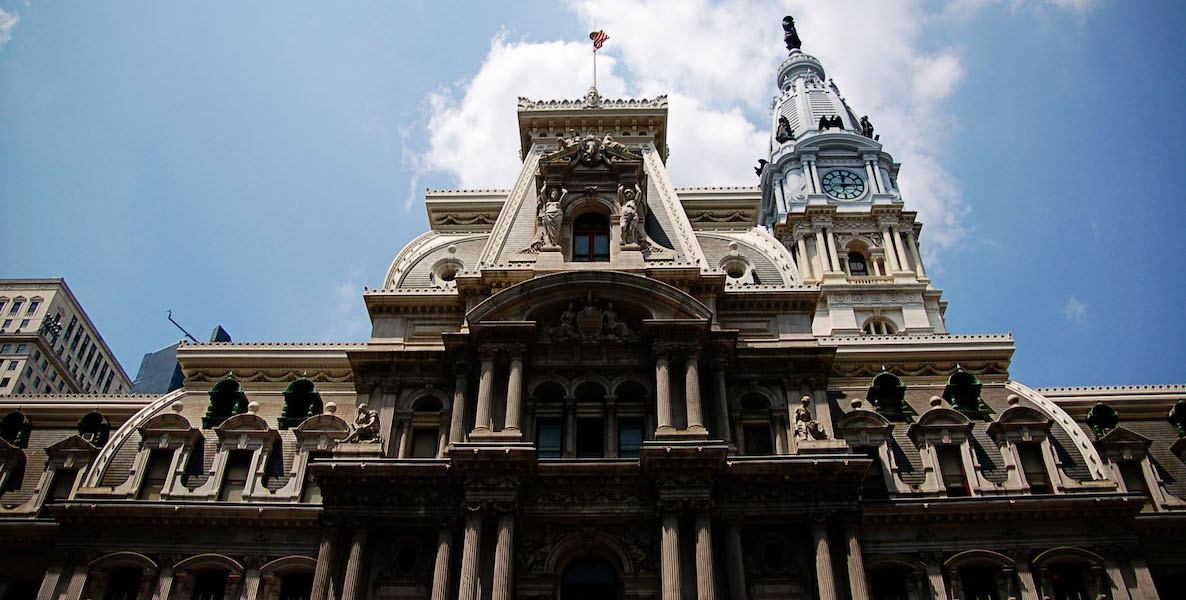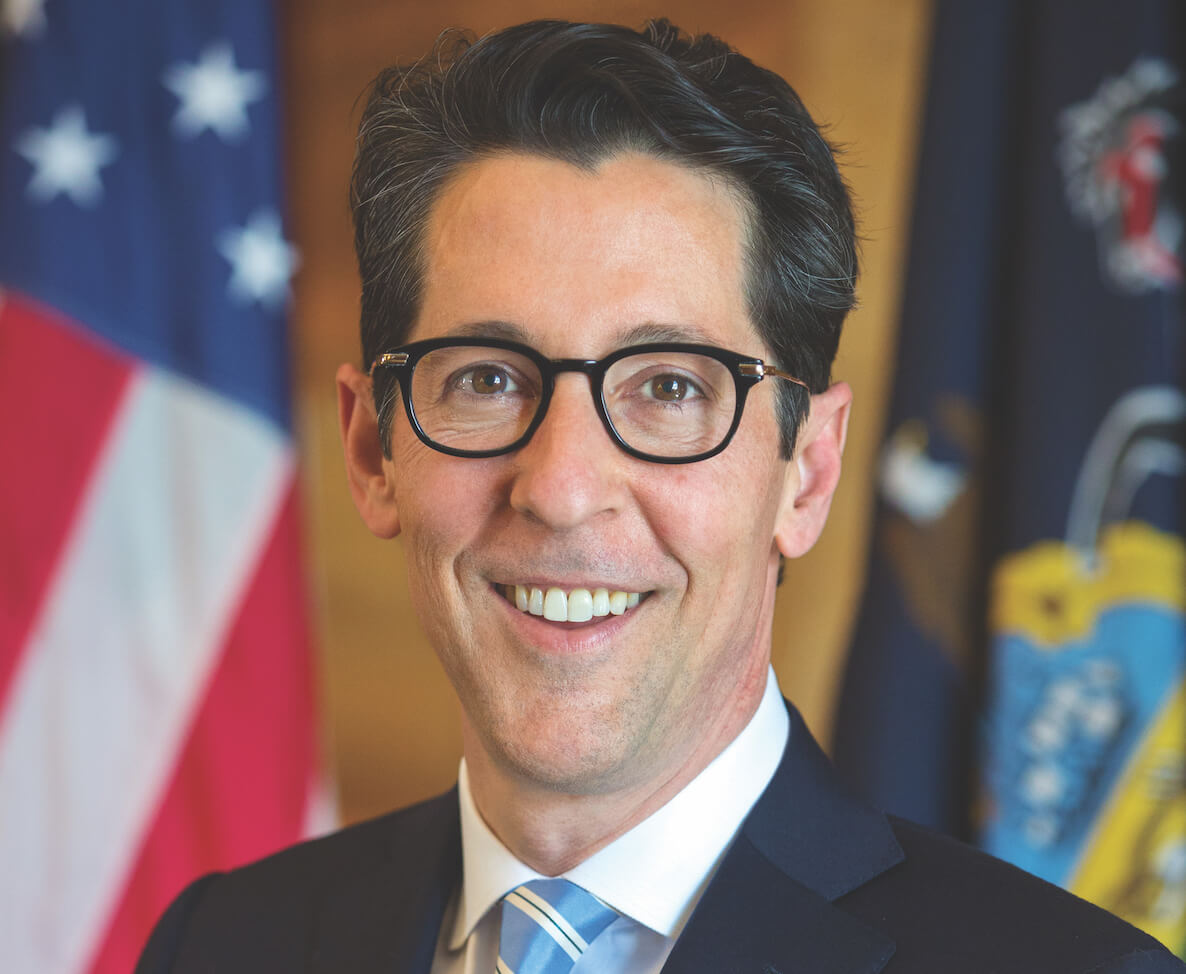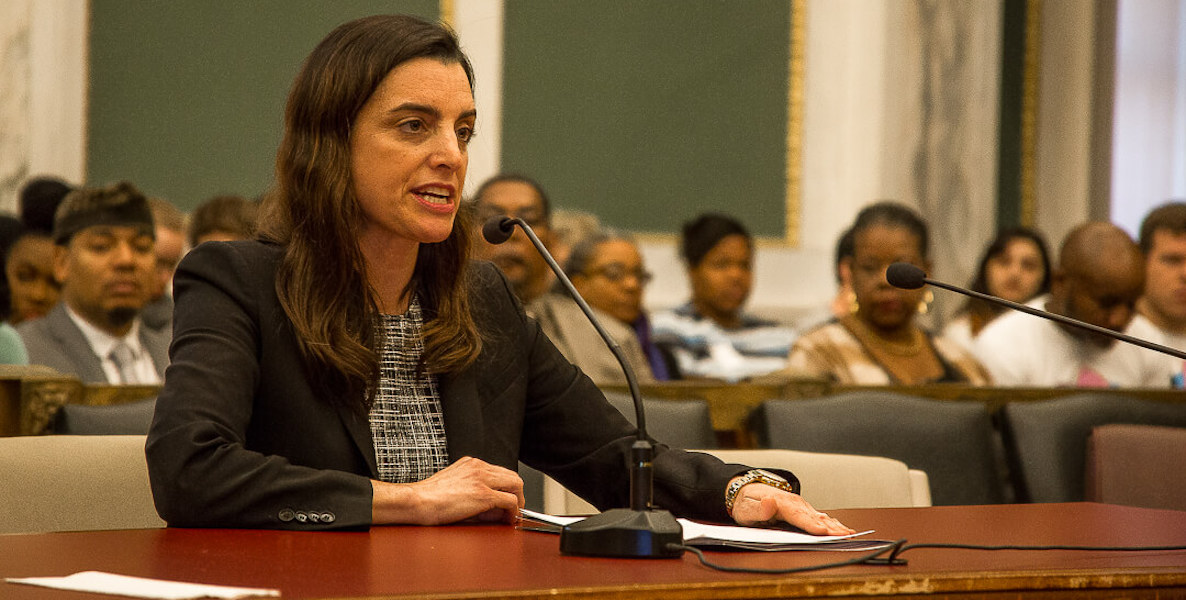to this story in CitizenCastListen
These facts might be relevant to the public’s understanding of how that city operates, or more likely not. The point is those spending receipts and reams of others are readily available—easily pulled up with just a few mouse clicks in an online database put together by the city’s controller, Ron Galperin.
In Philadelphia, Controller Rebecca Rhynhart wants to see something similar, and she is determined to build it on her own if Mayor Jim Kenney doesn’t take the lead.
Read the quick version of this storyShort on Time?
The concept is simple: build a user-friendly, comprehensive, regularly updated database of city spending, including salaries, vendor contracts, and all other expenditures that don’t need to be shielded from public view. The execution, at least in many cities that have attempted it before, appears to be mixed.
Los Angeles has a fabulous near-real-time compendium of outside spending, but the sister site showing payroll expenses was last updated more than a year ago. Checkbook NYC, put together by New York City Comptroller Scott Stringer, appears comprehensive, but it is cumbersome and seems difficult for anyone without a master’s in public administration and working familiarity with New York government.
OpenBook Pittsburgh outshines some of the efforts in larger cities in that it shows the actual contracts with many vendors—including a law firm hired by the mayor last fall to look into alleged ethical violations—but it, too, feels somewhat complicated to navigate. Nevertheless, there is a wealth of information there, including the terms of Pittsburgh’s contract for police body cameras, and agreements wherein Pittsburgh provides fire protection to outlying boroughs.
The idea of an open checkbook is not a foreign concept in Philadelphia.
The city has posted data on spending for an entire fiscal year—but that is now three years out of date.
Mike Dunn, a spokesperson for the mayor, said that Marisa Waxman, the budget director, is “very much a proponent of greater transparency,” and is working with the Open Data team to update the city’s financial information online, with updates to salary and overtime spending expected by the end of June. But it’s unclear if that update will include any real-time tracking of salary and overtime or merely provide a window into prior spending. Open checkbooks typically offer much more than just salary information.
Rhynhart has tangled with the Kenney administration before—over a roughly Advocate for an open budgetDo Something
“Historically, in Philadelphia, it’s been a fight around transparency,” Rhynhart says. “I think that there’s a culture of not sharing the information and of being secretive, which is sort of an old school way of governing, and what we need to do is put everything out there.”
A public airing of the city’s financial books would almost certainly benefit government accountability—spurring uncomfortable conversations and prompting thorny questions. It is easy to picture an investigative reporter, or an activist, spending hours perusing spending in pursuit of malfeasance.
It could also help with the bottom line. Nothing would stop a commercial supplier from scoping out Philly’s expenses with an eye toward crafting a more competitive bid.
The nationwide protests against police brutality and structural racism have focused scrutiny on city governments, and especially their police departments.
Already, Police Commissioner Danielle Outlaw has ordered the department to reform its use of force policy, and Kenney has dialed back his proposal for increased funding the police department.
An open checkbook would allow the public to see the amount of overtime paid out in recent weeks, and it could also expose police department purchases of controversial tools for battling protesters—such as tear gas and rubber bullets.
Overtime is, among other things, expensive, and Rhynhart says the city could save $45 million per year by reducing overtime levels to what they were about a decade ago.
That brings up another issue with Rhynhart’s open checkbook idea.
As the pandemic and resulting economic collapse have gouged a $650 million hole in the fiscal 2021 budget, the mayor and City Council are busy cutting spending, and postponing projects to improve quality of life. That raises a question about whether now is the right moment to embark on an ambitious government data project?
About open checkbook models LEARN MORE
But of course resources are more constrained today than they were a year ago, and Rhynhart says she is still talking with staff about the timing and cost of building an open checkbook. She declined to give an estimate of what the project would cost at this early stage, but within about six months she said she should have an answer to those questions.
The public accountability that an open checkbook would provide is arguably more necessary during a fiscal crisis for another reason as well. The mayor, under the City’s Charter, has the sole responsibility for ensuring the city does not slide into a deficit, and he is empowered to unilaterally reduce spending to prevent that from happening.
If the mayor chose not to announce those spending reductions, an open checkbook could provide a big signal that he has reduced or eliminated funding in some area. It is not only fiscal hawks who benefit from transparency.
Modern history is littered with examples of government agencies forking over huge sums for computer programming projects that wind up failing spectacularly. The numerous problems with the websites facilitating the Affordable Care Act seven years ago are some of the most high-profile examples of that, but the phenomenon is unfortunately more widespread.
If Rhynhart succeeds in opening up a window on Philly finances, people might not be happy with what they see, but that’s not necessarily a reason to avoid doing it.
“People already know that government’s not perfect, OK. So let’s just be upfront and honest: This is what we’re spending it on,” Rhynhart says. “People get upset, then let’s fix it.”
Header photo courtesy Britt Reints / Flickr





